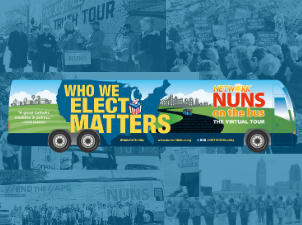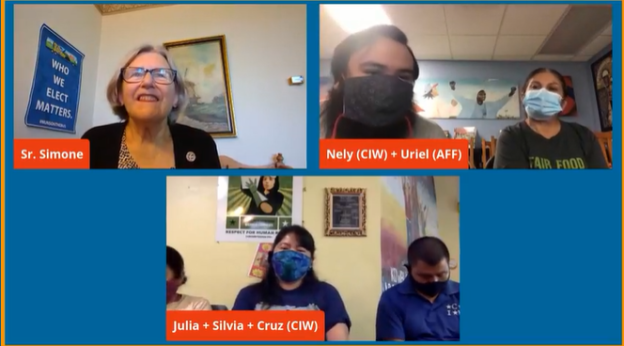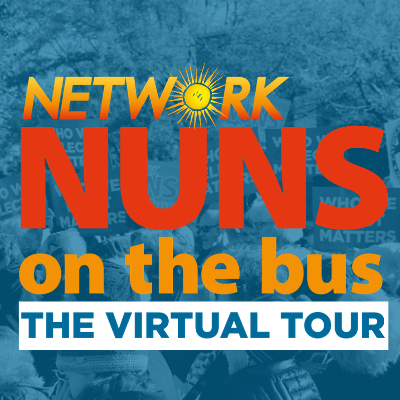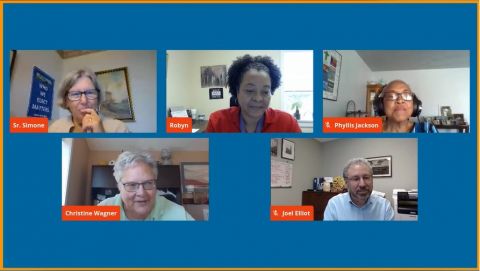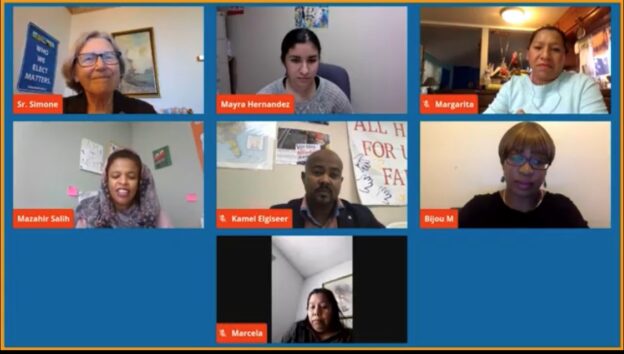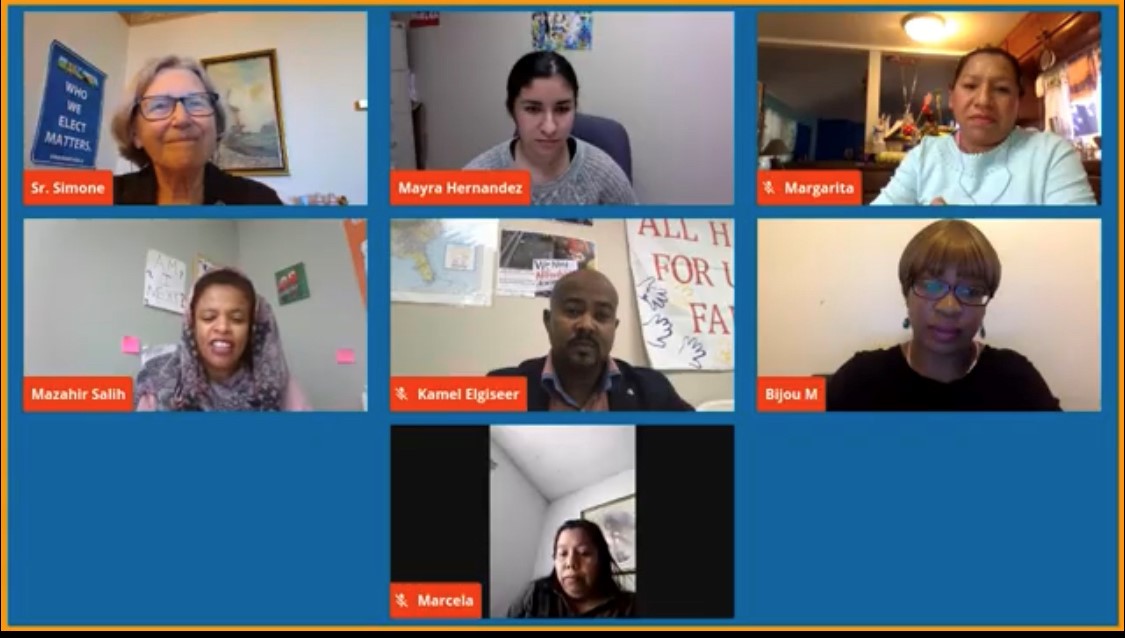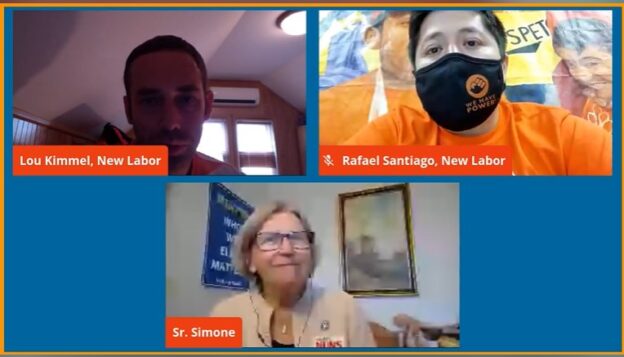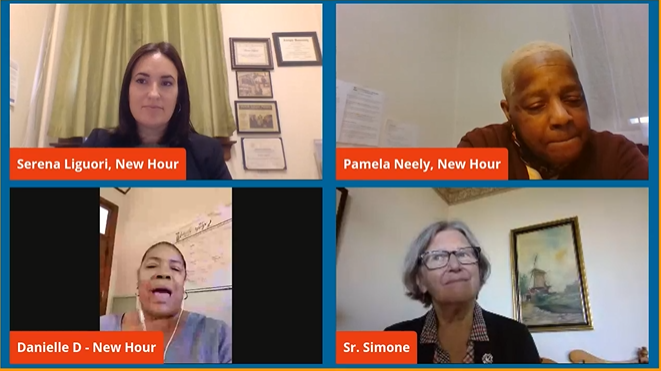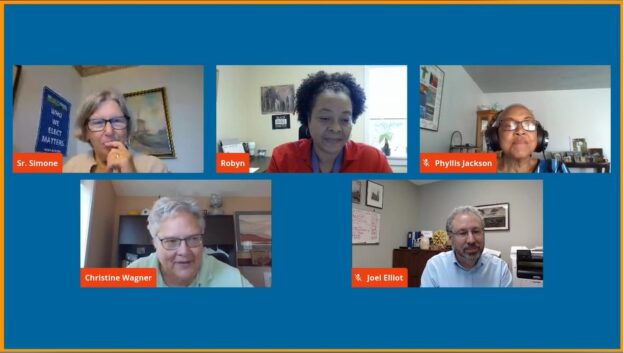
Discussing the Three C’s at a San Antonio Town Hall
Sr. Bernadine Karge
October 9, 2020
Friday night, Oct. 9, found 77 folks on the bus at Network’s town hall in San Antonio, sponsored by the Intercongregational Leadership Group of San Antonio. The seven men on the bus were outnumbered 10 to 1 by women. Curiously, three of the seven were named James or Jim!
In the opening prayer, we called upon the fire of the Spirit to give us audacity and hope in this election season to engage in dialogue with others even though we may disagree with their viewpoints. Encounter, being together and seeking a future of freedom will enable us to be community.
Our animated interfaith exchange evolved into the three C’s: the common good, character and conscience. Most of the attendees lived in the San Antonio and Austin areas. As part of this wonderful multicultural, multilingual, multiracial world, they identified immigration as one of the key issues in which they are involved.

A health care worker adjusts a monitor on a patient’s hand at United Memorial Medical Center in Houston Sept. 30. Texas ranks 50th in the United States for access to affordable health care. (CNS/Reuters/Callaghan O’Hare)
The fact that Texas ranks 50th in the United States for access to affordable health care was raised by many as something they are not proud of as Texans.
Those who work in agriculture know the need to organize, cooperate and work to bring in the harvest. Care for the environment, care of the Earth, education and economic equity were also added to the common-good stew.
The character of whom we elect was raised as most important. Is there one who can see how our policies are the sources of suffering, inequity, grief and fear among the community? Is there one who can recognize those who suffer with empathy and compassion?
One of the nuns on the bus who recently returned to the United States after 50 years on mission in many African countries reflected on the blast of vitriol present in the public discourse in the United States. In this time of fever pitch, we need the ability to listen to another, to respect the human dignity of each person, to seek truth and to live with integrity.
“Be curious, not furious” was a slogan shared to be a means to encountering another without judgment.
As we moved on in our conversation, the word “conscience” came to the fore. We raised the fact that the issues of this time cross interfaith barriers. An integrated, holistic approach to honoring each human is possible. Each person has a conscience, whether they operate out of a faith tradition or not. Each of us can choose to show empathy. As someone remarked, “A little goes a long way.”
One thing that the COVID-19 rollercoaster has taught us is that we are all in this together. There is something we can do: Get out to vote and bring your friends. “Silence is violence.”
[Sr. Bernadine Karge is a Dominican Sister of Sinsinawa, Wisconsin, who has practiced immigration law in Chicago for more than 30 years.]







